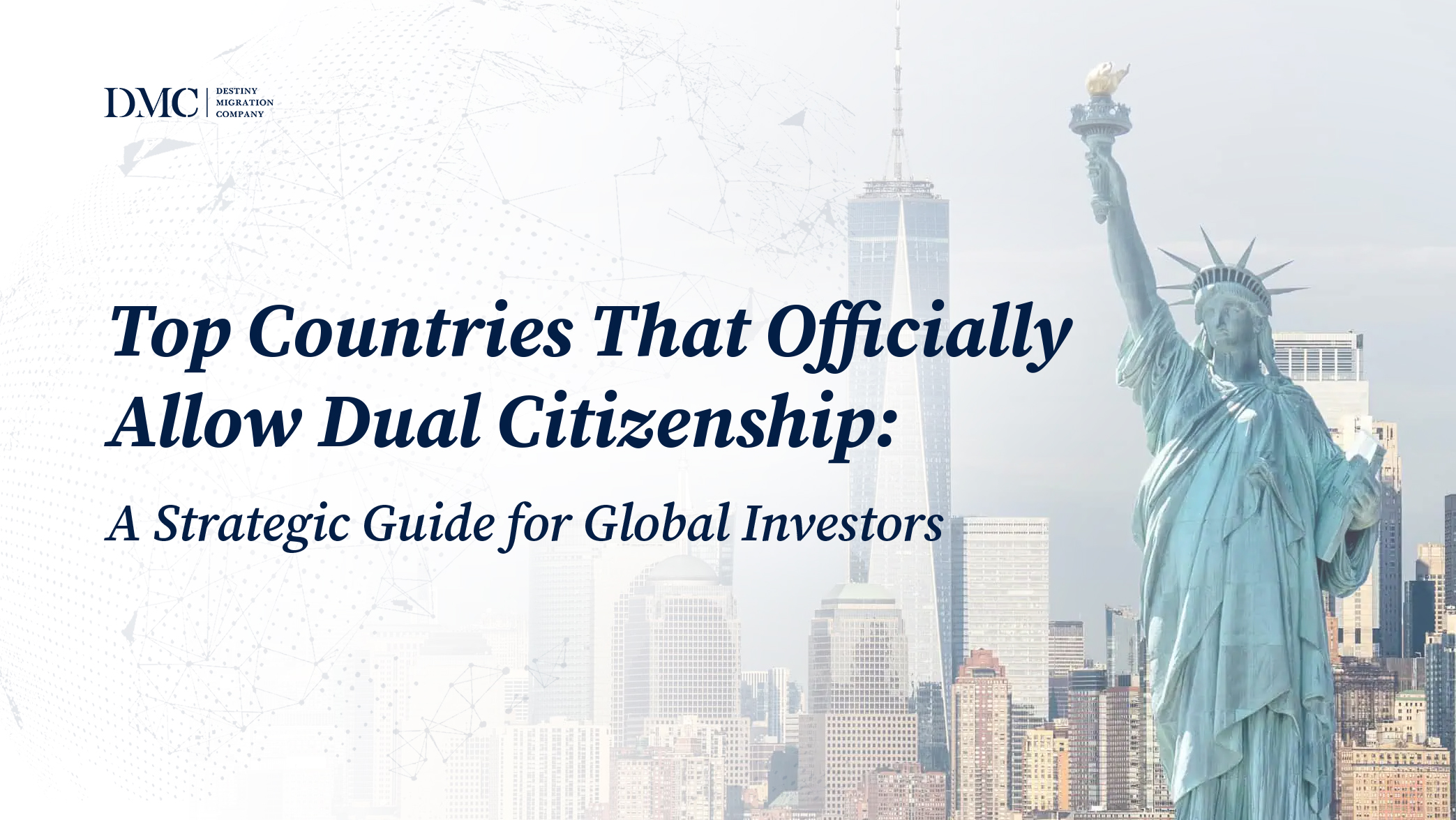Top Countries That Officially Allow Dual Citizenship: A Strategic Guide for Global Investors

For high-net-worth individuals, a second citizenship is not just a lifestyle upgrade, it’s a strategic asset. It provides security, stability, mobility, and access to new markets. But not every nation welcomes dual nationality. Many still require applicants to renounce their original passport, which makes the process complicated and unattractive.
This guide breaks down what matters most in 2025:
- Which major countries allow dual citizenship
- Which countries restrict or prohibit it
- Why global citizens are securing a second passport now
Why Dual Citizenship Matters for HNWIs
Today, dual citizenship is a powerful tool for those who operate across borders or protect multi-generational wealth.
1. Global Mobility Without Restrictions
A strong second passport unlocks visa-free access to major financial centers. No long visa queues. No unpredictable immigration decisions. Just freedom to travel, negotiate, and build opportunities.
2. A Safety Net in Uncertain Times
When political tensions rise, when a currency weakens, or when markets shift, a second citizenship becomes a guaranteed place to live, invest, or relocate. A stable passport is insurance for the future.
3. Asset Protection & Tax Efficiency
Many citizenship jurisdictions offer:
- No wealth tax
- No inheritance tax
- No capital gains tax
- No tax on worldwide income
This makes dual citizenship a legitimate, legal tool for protecting assets.
4. Family Advantages
Children gain access to world-class education systems, premium healthcare, and the ability to live or work abroad without complicated paperwork.
In short:
Dual citizenship is a long-term investment in mobility, security, and legacy.
Countries That Allow Dual Citizenship
Many of the world’s most globally connected nations permit dual citizenship, making it easier to build a borderless lifestyle, grow businesses internationally, and secure long-term family planning.
Examples of countries that allow dual citizenship:
- United States
- Canada
- United Kingdom
- Australia
- New Zealand
- Portugal
- Ireland
- Malta
- Cyprus
- Turkey
- Grenada
- St. Kitts & Nevis
- Antigua & Barbuda
- Dominica
- Saint Lucia
These jurisdictions have become popular second-passport choices because they combine strong mobility, global banking access, attractive tax planning, and political stability.
Countries That Do Not Allow or Restrict Dual Citizenship
Some nations still require citizens to hold only one passport, meaning that obtaining a second citizenship may require renouncing the original nationality.
Examples of restrictive countries:
- China
- India
- Indonesia
- Singapore
- Japan
- Nepal
- Saudi Arabia
- UAE (limited, special cases only)
Restrictions vary, some countries require renunciation, others cancel citizenship automatically if a second nationality is acquired. Rules also shift frequently, so professional legal guidance is essential.
Final Insight
As more countries tighten immigration rules, raise investment thresholds, and increase due diligence, the window of opportunity is slowly narrowing. Families who move early gain the strongest mobility rights, the widest passport options, and the most favorable investment structures. Waiting often means higher costs, stricter rules, and fewer pathways.
Thinking About a Second Passport?
Dual citizenship is more than travel freedom, it’s about security, tax efficiency, lifestyle mobility, and wealth protection. If you’re considering a second passport or Residency by Investment, our advisors can help you choose the program that fits your goals, family, and timeline.
📩 Contact DMC Global for a private consultation. Your next passport could open more doors than you think.


